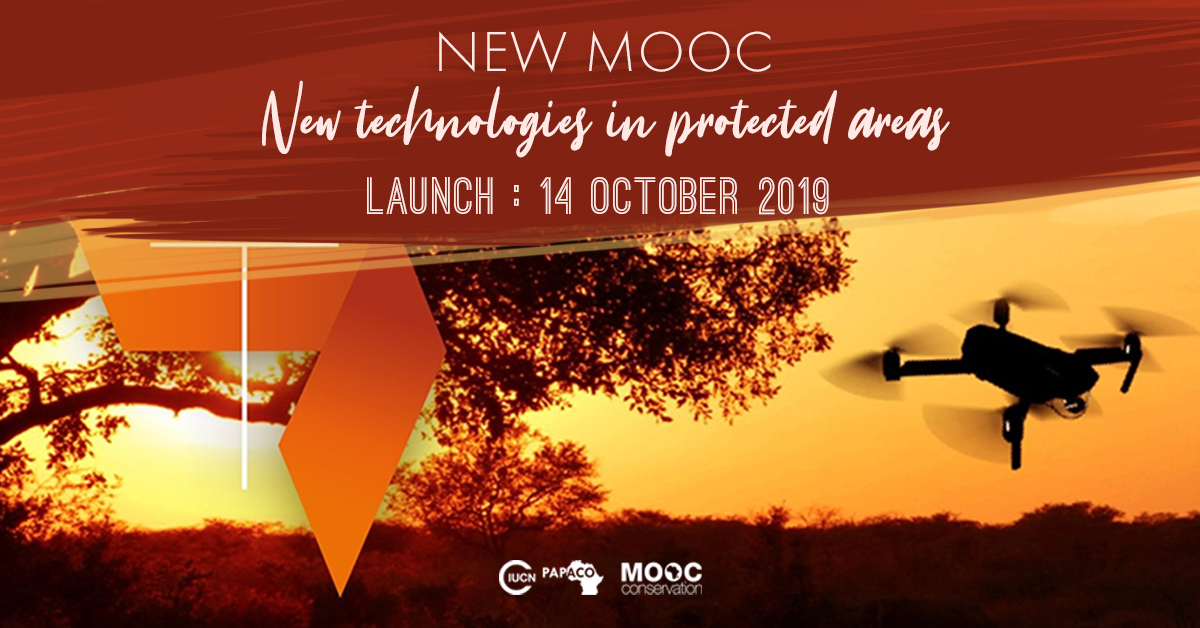New technologies in protected areas
Protected areas must use the digital revolution to their advantage. Adaptable new technologies are booming, connectivity is more and more available. The new MOOC TECH will introduce these technologies as applied to existing techniques in conservation as well as new uses in the field.

Drones, Blockchain, Electronic Communications, and more in the new MOOC course
Photo: PAPACO
Some technical basics in the areas of energy availability, electronic communications, data storage, and software are explained, and new developments such as blockchain are presented, along with examples from the field. The course also covers prerequisites for implementation of various technologies, the scientific and technical bases for different technologies, opportunities, limitations, and more.
Just a few weeks after the launch, 1200+ people enrolled in the course and a dozen students have already passed all the exams and received a statement of accomplishment from IUCN. Gradutates are usually 19 to 40 years old, based in Africa: DRC, Burkina Faso, Tunisia, Benin, Togo and Guinea.
Moadh was the first student to graduate from the MOOC-TECH. He says:
I am from Tunisia where I have been working as a vet for the past 5 years. I started working in the conservation/threatened species sector while on a trip to Qatar where I worked in a reproduction center for MacQueen's bustard (Chlamydotis maqueenii).
I consider this MOOC to be of capital importance: new technologies make protected area management more efficient and transparent and all staff should follow such a course to benefit from the use of technologies.
Poachers use more and more avanced methods to avoid law enforcement (infrared scopes, falsification of documents, interception of signals emitted by tracking collars) and it is therefore very important for PA managers to stay ahead of them.
I really loved the concept of Papaco's MOOCs. These courses, open to all, allow professionals to stay updated on protected area management. Since I completed the first MOOC in 2016 ("Protected areas management in Africa") on the Coursera platform, I’ve wanted to be the first to complete one of the courses, and now with the MOOC-TECH I’ve accomplished that.
Paul FALAY LIENDO, an engineer in forest ecosystem management working in the Democratic Republic of Congo. looks forward to his work being made simpler and more effective by the innovative technology he has learned on the course:
I just finished the MOOC-TECH and found it very innovative as it presents many new ways to make our everyday work easier and to lower the costs and improve the efficiency of anti-poaching, data collection, research and inventories.
The current session runs until mid-December. Join the next sessions now, by registering here: www.mooc-conservation.org.
The MOOCs are a partnership between PAPACO, Senghor university, and the EPFL Swiss engineering school, and already count over 30 000 registrations. The other MOOCs (Protected Area Management, Ecological Monitoring, Species Conservation, Law Enforcement and Valorisation of PA resources and tourism) are still going strong. The current session of these MOOCs has already started and finishes 15 December 2019.



